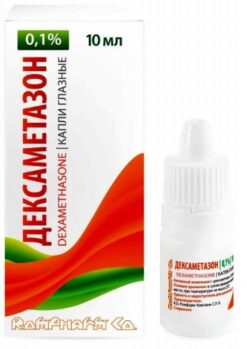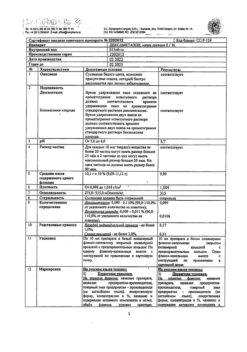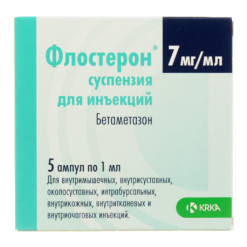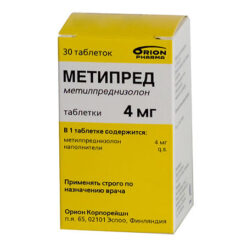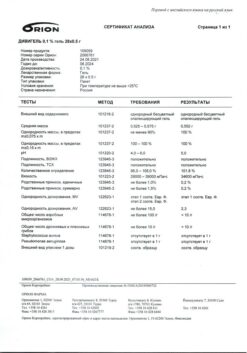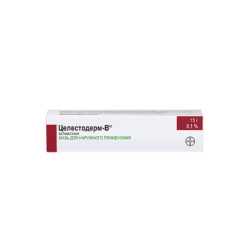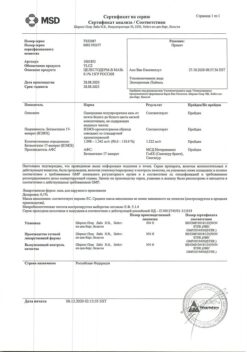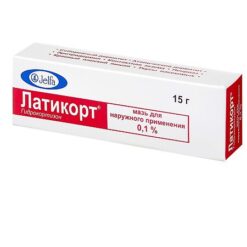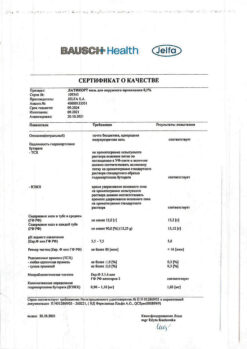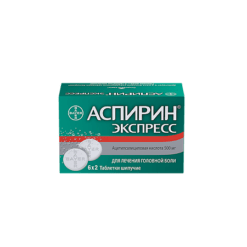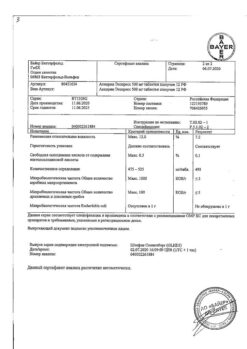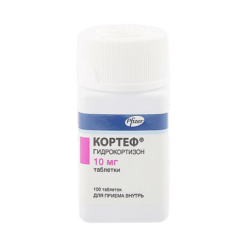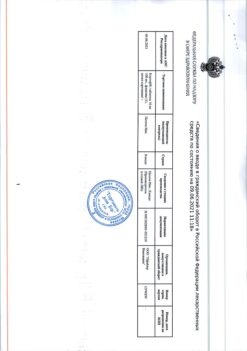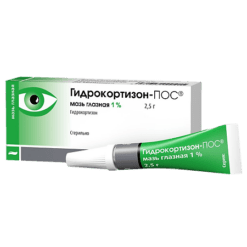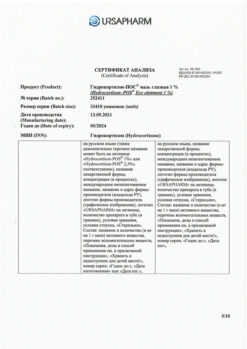No products in the cart.
Aponil, tablets 100 mg 20 pcs
€1.00
Out of stock
(E-mail when Stock is available)
Description
Aponil has anti-inflammatory, analgesic and antipyretic effects, whose mechanism is due to selective inhibition of COX-2, which leads to a decrease in prostaglandin synthesis in the focus of inflammation, as well as in the hypothalamus.
The effect on the synthesis of prostaglandins in the gastric mucosa and kidneys is much less pronounced, which determines the good tolerability of nimesulide.
Aponil also inhibits lipid peroxidation and formation of free oxygen radicals, decreases formation of platelet-activating factor, tumor necrosis factor alpha, release of histamine, proteinases and some other inflammatory mediators.
Indications
Indications
Active ingredient
Active ingredient
Composition
Composition
1 tablet contains:
The active substance: nimesulide 100 mg.
Auxiliary substances: lactose monohydrate, microcrystalline cellulose, sodium docusate, starch, sodium glycolate, hydroxypropyl cellulose, hydrogenated vegetable oil, magnesium stearate.
How to take, the dosage
How to take, the dosage
In adults: the single dose is 50 to 200 mg, the average dose is 100 mg, and the maximum daily dose is 400 mg.
In children over 12 years of age a single dose of 1.5 mg/kg body weight (but not more than 100 mg) is given; the maximum daily dose is 5 mg/kg.
The drug is taken 2 times a day after meals; wash the tablets with water.
Interaction
Interaction
In concomitant use nimesulide competes for binding to plasma proteins and increases the risk of side effects of sulfonylurea derivatives (including oral hypoglycemic agents), hydantoin, foxglove drugs, cyclosporine and methotrexate.
In concomitant use with acetylsalicylic acid nimesulide is displaced from plasma protein binding, and the concentration of free nimesulide in plasma increases by 2-3 times.
In concomitant use nimesulide increases the effect of indirect anticoagulants.
In concomitant use with lithium preparations nimesulide increases the concentration of lithium in plasma.
Special Instructions
Special Instructions
Caution is used in elderly patients with cardiovascular diseases, including arterial hypertension, susceptibility to bleeding, upper GI disorders, renal dysfunction (dose reduction is recommended), during treatment with anticoagulants and antiaggregants.
In case of visual impairment, the drug should be stopped immediately and an ophthalmologist should be consulted. Patients with diabetes mellitus and patients on a low-calorie diet should note that the drug contains sucrose.
With caution, use while driving and for people whose profession requires a high level of concentration.
Contraindications
Contraindications
Side effects
Side effects
Digestive system disorders: pain in the epigastric region, gastrointestinal mucosa ulceration, diarrhea, heartburn, nausea, increased liver transaminase activity; rarely – vomiting.
CNS disorders: headache, dizziness, somnolence.
Urinary system disorders: rarely – hematuria, oliguria, fluid retention, edema.
Hematopoietic system: thrombocytopenia, leukopenia, anemia, agranulocytosis, prolongation of bleeding time. Allergic reactions: skin rash, urticaria, anaphylactic shock.
Overdose
Overdose
Symptoms: nausea, vomiting are possible.
Treatment: gastric lavage, administration of adsorbents; if necessary – infusion therapy, administration of osmotic diuretics, symptomatic therapy.
Pregnancy use
Pregnancy use
The drug may be used in pregnancy only when the expected benefits to the mother exceed the potential risk to the fetus.
The drug is not recommended during lactation. If it is necessary to use the drug during lactation, the question of stopping breastfeeding should be decided.
There have been no embryotoxic and teratogenic effects of the drug in experimental studies.
Similarities
Similarities
Additional information
| Weight | 0.021 kg |
|---|---|
| Shelf life | 3 years |
| Conditions of storage | In a dry, light-protected place at a temperature not exceeding 25 °C |
| Manufacturer | Medokemi Ltd, Cyprus |
| Medication form | pills |
| Brand | Medokemi Ltd |
Related products
Buy Aponil, tablets 100 mg 20 pcs with delivery to USA, UK, Europe and over 120 other countries.


